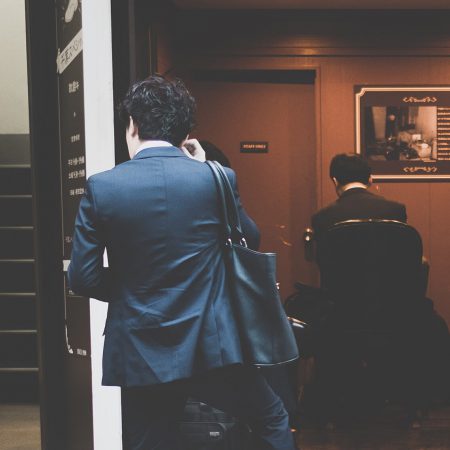My work –from getting up to going to sleep —

Every single one of us on this planet has a routine. Much like fingerprints, routines are unique. Guaranteed, no two separate people on Earth do the same exact things over the stretch of a 24-hour period.
The same goes for foreigners in Japan. An enormous chunk of the 2.83 million foreigner population is a part of the country’s workforce, with close to 600 thousand of those foreign residents currently calling Tokyo their home. All of them belonging to different companies, each with unique cultures, their typical workdays are bound to be non-identical to one another.
Table of contents
4 Foreigners and Their Typical Working Days in Japan
So, have you ever wondered how expats go about their workdays? Luckily, we have gathered insights from 4 unrelated foreigners who live in the same city but work for different companies. They will show how foreigners living in Japan have distinct daily routines.
The first one works for a western firm in Tokyo (his post is from 2015). The second is an accountant in Tokyo (her post is from 2018). The third works for a big company in Tokyo and is an author (his post is from 2015). And the fourth is currently a product development manager in Tokyo.
The western firm employee will identify as A, B for the accountant, the author is known as C, and the product development manager is going to be D.
Preparation

Waking up on time is a terrific way to start the day. It enables people to have ample time to prepare themselves. This, in turn, sets a good mood for the rest of the day. Here’s how foreigners A, B, C, and D’s mornings usually go:
- “A” starts his days at 8:00 am but wakes up at 6:30 am if it is one of his two gym days per week.
- Meanwhile, “B” begins her days at 9:30 am. She typically eats breakfast and prepares herself before heading to work.
- “C” wakes up at 6:00 am.
- “D” sets his alarms at 6:00 am, takes a shower, eats breakfast, and feeds his cat.
Some foreigners, much like locals, take baths the night before to save time or because of the cold season. They sometimes eat breakfast on the go or stop by mini-marts so they won’t waste minutes preparing food.
All-aboard!

Commuting to work is one of the best things about Japan. The trains are rarely late. Plus, people are usually quiet and well-mannered inside the train. Most Japanese people prefer the train rather than driving to work. They deem it to be more efficient. How about foreigners A, B, C, and D? How do they get to work?
- “A” boards the train before 9:15 am to avoid rush hour. He considers his commute to be reasonable, as it only takes 30 minutes.
- “B” is just one train station away from her office. The office is a 2-minute walk from the station.
- “C” walks to the train station and arrives by 7:00 am. He walks to the office from the terminal and enters the building by 8:30 am.
- “D” leaves his house by 7:15 am and takes the subway. He arrives at his office by 8:00 am.
Every single one of them takes the train to get to work, just like most Japanese. A lot of people in Japan don’t drive anymore. “C” stated in a different post that the company that he worked for in Tokyo had approximately 1,000 employees, and only five of them use their cars to travel to work. The five people were the president of the company and his 4 directors.
Work hard

The office is where foreigners allot most of their time during weekdays. Japanese people are widely known to be the most dedicated employees, so it’s not hard to imagine that a lot of gaijin try to emulate Japan’s enthusiasm for work. Let’s take a look at what goes on at foreigners A, B, C, and D’s respective workplaces.
- “A” works for a western firm, so he’s comfortable with the office’s culture. He usually eats lunch with his workmates. He sometimes jogs around the Imperial Palace for exercise. He logs out for the day between 18:00 and 19:00 pm.
- “B” works from 11:30 in the morning to 22:00 in the evening. She takes two breaks per day, her lunch break and dinner break.
- “C” works until 20:00 pm.
- “D” uses the morning to plan his day and do the most crucial work, like attending meetings. After lunch, he mostly does light work, like responding to emails. He clocks out at 17:00 pm.
Clearly, a lot goes on inside the offices of A, B, C, and D. We can’t go into detail about the specific tasks that they have to finish each day, but “D” interestingly stated that up until today he still finds it surprising that his co-workers practice omiyage and bring him souvenirs from vacation, even though this has happened countless times.
Play hard

People have various ways of coping with themselves after a long day’s work. Some like to head directly home, while others love to have nights out with co-workers. Regardless, leaving work after a tiresome day is a wonderful feeling. This is how foreigners A, B, C, and D utilize their downtime:
- “A” says that drinking is a big part of their workplace culture. So once or twice a week, he catches up with the boss and some of his colleagues. They have drinks and dinner together.
- “B” spends her spare time at the 24-hour gym close to her office. She works out 4 or 5 times per week.
- After work hours, “C” walks to the train station. But once or twice per week, he and his co-workers or friends go out for dinner, drinks, or a fun night of karaoke.
- “D” chooses to head home directly and arrives at his place by 18:00 in the evening.
Wisely spending time once the workday is over is likely going to affect whether an individual will be happy with the job or not. Going back home directly, heading to the gym, or going out with some acquaintances are great ways of using your free time from the hassles and stresses of work.
Home sweet home

A house is more than just a structure with a door and windows. It is a place where minds clear from work and where people go to kick back, relax, and try to catch some Zs. What do foreigners A, B, C, and D do after they board the train and make it home?
- “A” occasionally expects calls at night from their New York office. He tends to these calls while drinking beer.
- “B,” on the other hand, showers, prepares for the next day and cleans the house. She and her boyfriend (from the Netherlands) regularly Skype or Facetime until 3:00 am. She dozes off afterward.
- “C” partakes his dinner and watches TV before he goes to bed by 23:00 pm.
- By the time “D” gets home, he exercises, studies, plays with his pet, talks with his wife, watches Netflix and does chores. He then goes to the bedroom to catch some sleep.
Those are examples of how regular work days go for foreigners in Japan. All 4 of them may live in the great city of Tokyo, but their schedules are as varied as they come. They go about their days differently, starting from how they prepare in the morning down to their activities before they hit the sack.
What about you? How do your typical working days look like? Don’t be shy and let us know about your daily routine in Japan. Until next time. Too-da-loo!
Motto Japan, the community platform to support foreigners with the foundation for life in Japan, including Japanese study, job opportunities, and housing service. Motto Japan Media will provide a wide variety of information for Japanese fans all over the world, to create a cross-cultural environment and enrich the life of foreign residents in Japan!













Leave a Reply